Table of contents
Introduction to Java
Understanding the Java Ecosystem
Java Development Tools and IDEs
Java Software Development Programming Best Practices
Advanced Java Concepts
Java Frameworks and Libraries
Java in Modern Development
Why Opt for Java Programming?
Advantages of Using Java Development Services
Risks of Not Opting for Java Development Services
Essential Elements in Java Software Development
Benefits and Responsibilities in Java Development Services
Services Offered by Java Development Companies
What are the Advantages of Hiring a Leading Java Development Company
Tips for Hiring the Best Java Developers
Future Trends in Java Development
Conclusion: Embracing Java Development Services
FAQs
Java is a robust, high-level programming language that has remained at the forefront of software development for decades. Known for its portability, scalability, and efficiency, Java powers various applications, from mobile to enterprise-level systems. This guide delves into the essentials of Java and Java software development services and offers insights into its features, tools, best practices, and applications.
Introduction to Java
Java's Origins and Evolution
Sun Microsystems developed Java in the mid-1990s to provide a platform-independent language that could run on any device. Its “write once, run anywhere” (WORA) capability, achieved through the Java Virtual Machine (JVM), quickly made it popular among developers. Over the years, Java has evolved, with regular updates introducing new features, libraries, and tools, ensuring it remains relevant in the ever-changing world of software development.
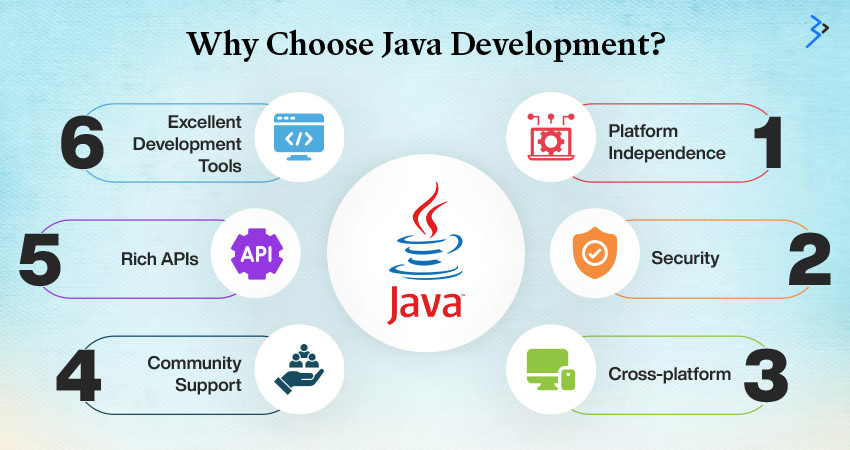
Why Choose Java?
Java's popularity is rooted in its versatility and reliability. Java provides a solid foundation for developing mobile apps, web applications, or enterprise-level systems.
The key reasons Java Development Company chooses Java are as follows:
- Platform Independence: The JVM allows Java programs to run on any device or operating system, making it highly portable.
- Security: Java's built-in security features, such as its robust memory management and exceptional handling, make it a safe choice for developing applications.
- Scalability: Java is suitable for both small and large-scale applications, with frameworks like Spring and Hibernate simplifying the development process.
- Community Support: A vast, active community ensures that Java developers have access to a wealth of resources, libraries, and frameworks.
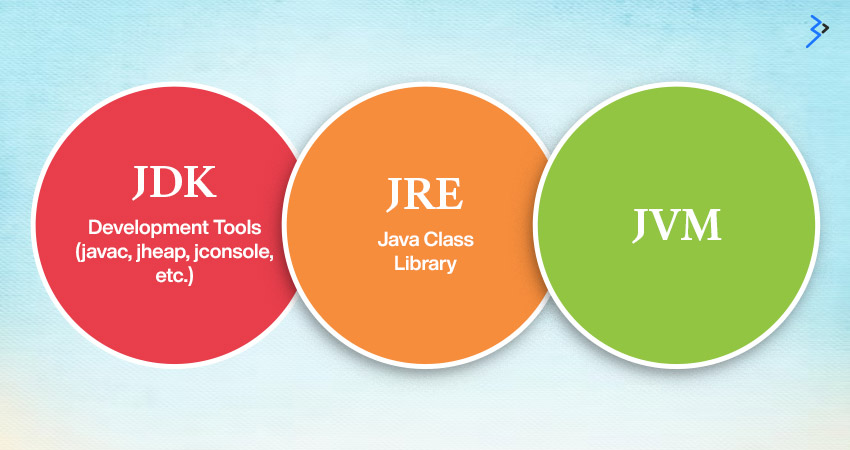
Understanding the Java Ecosystem
The Java Virtual Machine (JVM)
The JVM is the cornerstone of Java's platform independence. It acts as an interpreter between Java bytecode and the underlying hardware, allowing Java programs to run on any system with a JVM installed. The JVM also handles critical tasks like memory management and garbage collection, contributing to Java's efficiency and performance.
Java Development Kit (JDK) and Java Runtime Environment (JRE)
Core Libraries and APIs
Java's extensive core libraries provide pre-written code for various tasks, reducing the need to reinvent the wheel. These libraries cover everything from data structures (like ArrayList and HashMap) to networking, file handling, and user interfaces. Java offers many APIs that simplify complex tasks such as database connectivity (JDBC), remote method invocation (RMI), and web services.
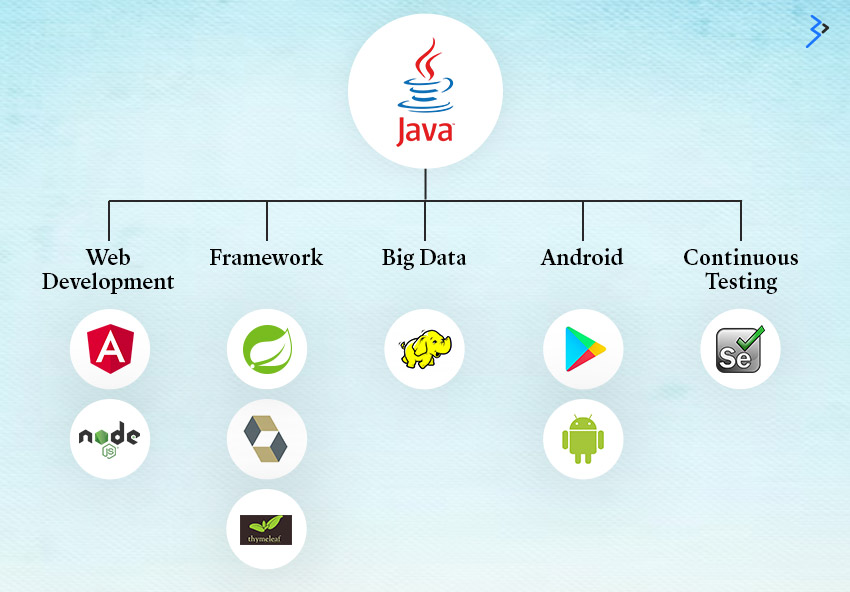
Java Development Tools and IDEs
Integrated Development Environments (IDEs)
Choosing the proper IDE can significantly enhance productivity. Some popular IDEs for Java development include:
- Eclipse: A widely-used, open-source IDE with a rich set of plugins that extend its functionality.
- IntelliJ IDEA: IntelliJ IDEA is a favorite among developers because of its intelligent code completion, deep understanding of Java, and user-friendly interface.
- NetBeans: Another popular open-source IDE, NetBeans, offers excellent support for Java and tools for PHP, C/C++, and HTML5 development.
Build Tools
Build tools automate the process of building, testing, and deploying applications. They manage dependencies, compile code, and package the application for deployment. Popular build tools in the Java ecosystem include:
- Maven: A powerful project management tool that uses an XML file to describe the project structure, dependencies, and plugins.
- Gradle: Known for its flexibility and performance, Gradle uses a Groovy-based DSL (domain-specific language) to define builds.
Version Control Systems
Version control is crucial for managing code changes, especially in large projects or teams. Git is the most popular version control system, with platforms like GitHub and GitLab providing collaborative features such as pull requests, code reviews, and issue tracking.
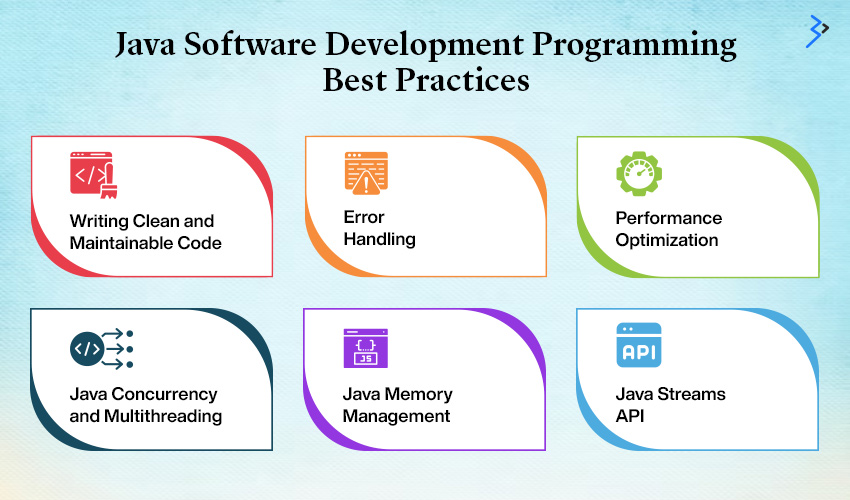
Java Software Development Programming Best Practices
Here are certain programming practices that Java Software Development Service companies follow to ensure the seamless development of the program.
Writing Clean and Maintainable Code
Writing clean, readable code is essential for long-term maintenance and collaboration of Java App Development. Key practices include:
- Consistent Naming Conventions: Use descriptive names for classes, methods, and variables, following Java's camelCase and PascalCase conventions.
- Modularization: Break down large codebases into smaller, reusable modules or classes, following the Single Responsibility Principle.
- Commenting and Documentation: Provide explicit comments and use Javadoc to generate API documentation, making your code easier to understand and maintain.
Error Handling
Effective error handling ensures that your application can gracefully handle unexpected situations. Use try-catch blocks to manage exceptions and log errors to help debug and monitor. Creating custom exceptions for specific error scenarios in your application is also essential.
Performance Optimization
Optimizing performance involves both algorithmic efficiency and resource management. Techniques include:
- Efficient Data Structures: Choose the proper data structure for your needs. For fast access times, for example, prefer ArrayList over LinkedList.
- Lazy Initialization: Delays the creation of objects until they are needed, reducing memory usage.
- Concurrency Management: Use Java's built-in concurrency features, such as the Java—util. A concurrent package handles multi-threaded operations efficiently.
Advanced Java Concepts
Java Concurrency and Multithreading
Concurrency allows multiple threads to run simultaneously, improving performance in multi-core processors. Java provides robust support for multithreading through the Java. Lang.Thread class and the Java. Until. Concurrent package. Key concepts include:
- Thread Management: Creating and managing threads, ensuring proper synchronization to avoid race conditions.
- Executors Framework: Simplifies thread management by providing a pool of threads to execute tasks asynchronously.
- Locks and Semaphores: Control access to resources in concurrent applications, preventing deadlocks and ensuring data integrity.
Java Memory Management
Java's automatic memory management is one of its standout features, freeing developers from manual memory allocation and deallocation. The JVM handles memory through:
- Garbage Collection: Automatically reclaims memory from objects no longer in use, preventing memory leaks.
- Heap and Stack Memory: Understanding the difference between heap (for dynamic memory allocation) and stack (for method call execution) is crucial for optimizing performance.
Java Streams API
Introduced in Java 8, the Streams API provides a powerful way to process sequences of elements (like collections) in a functional style. Streams support operations such as filtering, mapping, and reducing, making it easier to handle large datasets efficiently. Key features include:
- Lazy Evaluation: Streams are processed only when necessary, improving performance.
- Parallel Processing: Streams can be parallelized, automatically splitting tasks across multiple threads.
Java Frameworks and Libraries
Spring Framework
Spring is one of the most popular Java frameworks, and it is known for its comprehensive infrastructure support for developing enterprise applications. Key features include:
- Dependency Injection: Simplifies object creation and management by allowing the Spring container to inject dependencies automatically.
- Aspect-oriented programming (AOP) enables the modularization of concerns like logging and security, which are typically spread across multiple methods or classes.
- Spring Boot: A sub-project of Spring, Spring Boot simplifies the development of stand-alone, production-grade Spring applications with minimal configuration.
Hibernate ORM
Hibernate is an object-relational mapping (ORM) framework that simplifies database interactions by mapping Java objects to tables. It eliminates the need for boilerplate SQL code, allowing developers to focus on the business logic. Key features include:
- Automatic Table Creation: Hibernate can generate database tables based on your Java classes.
- Lazy Loading: Improves performance by loading data on demand rather than fetching all data simultaneously.
- Query Language: Hibernate provides HQL (Hibernate Query Language), a database-independent object-oriented query language.
Apache Kafka
Apache Kafka is a distributed streaming platform widely used for building real-time data pipelines and streaming applications. Thanks to its high throughput, scalability, and fault tolerance, Java developers often use Kafka to efficiently handle large volumes of data.
Java in Modern Development
Java and Microservices
Microservices architecture breaks down applications into more minor, loosely coupled services that can be developed, deployed, and scaled independently. With frameworks like Spring Boot and Dropwizard, Java is well-suited for building microservices due to its modularity, performance, and extensive ecosystem of libraries and tools.
Java in Cloud Computing
Java remains a popular choice for cloud-native development, with solid support for platforms like AWS, Google Cloud, and Azure. Java's portability and the availability of cloud-friendly frameworks like Spring Cloud make it ideal for building scalable, resilient applications in the cloud.
Java and DevOps
DevOps practices emphasize continuous integration and delivery (CI/CD), which have become essential in modern software development. Java developers can leverage tools like Jenkins, Docker, and Kubernetes to automate the build, testing, and deployment processes, ensuring faster and more reliable software delivery.
Why Opt for Java Programming?
Java programming continues to be a cornerstone of modern software development, particularly Java web development. Due to its robustness and versatility, Java has been a favored language since its early days.
Java frameworks empower developers to create everything from basic web pages to complex e-commerce platforms, ensuring scalability and efficiency. Beyond these common uses, Java is also the backbone of critical systems in industries like banking and finance, where it supports millions of transactions daily.
Java's widespread adoption is evident, as it runs on nearly 3 billion devices globally. Java Server programs, especially those within the J2EE framework, process numerous requests daily, making Java an indispensable tool for enterprises seeking reliable and secure Java web development.
Advantages of Using Java Development Services
Partnering with a specialized Java development company for your development needs brings many benefits to your business. Here’s why it’s a smart choice:
- Expertise: A professional Java development company offers access to seasoned developers with deep knowledge of best practices. This expertise ensures that your web-based or desktop applications are of the highest quality.
- Custom Solutions: Dedicated Java development can tailor your business applications to meet specific business needs, providing solutions that align perfectly with your objectives.
- Efficiency: Streamlined processes in professional Java development companies lead to faster project completion and reduced time to market, which is crucial for maintaining a competitive edge.
- Support and Maintenance: Ongoing support and maintenance services ensure your applications remain up-to-date and fully operational, providing peace of mind that your software will perform optimally.
- Cost-Effectiveness: Outsourcing Java development can lead to substantial cost savings, eliminating the need for a full-time in-house team and allowing you to allocate resources more efficiently.
Risks of Not Opting for Java Development Services
Choosing not to outsource services to a Java development company could lead to several challenges:
- Higher Costs: Managing an in-house development team can strain smaller companies financially, thanks to recruitment, training, and retention costs.
- Slower Innovation: With the diverse perspectives and advanced expertise offered by a global talent pool, your business might stay ahead of technological innovation, resulting in more competitive products.
- Delayed Time-to-Market: In-house teams, often limited by resources, may need to catch up with the pace of development required to stay competitive, leading to missed opportunities.
- Stunted Growth: Outsourcing might allow companies to scale efficiently or respond to rapid changes in the tech landscape, but it might also limit their growth potential.
Essential Elements in Java Software Development
Understanding the Java Development Process
The Java development process is a structured approach that ensures the creation of reliable and scalable applications. It starts with gathering project requirements to understand the goals and needs, followed by designing the system’s architecture.
Development then takes center stage as coders bring the design to life, followed by rigorous testing to ensure the software’s quality and functionality. Once tested, the application is deployed, and the process moves into the maintenance phase, where continuous updates and optimizations keep the application running smoothly.
Managing Java Project Challenges
Effective Java project management by Java development services involves:
- Navigating several challenges, including ensuring clear communication among team members and stakeholders.
- Managing evolving project scopes.
- Addressing technical issues like integrating new technologies and ensuring data security.
- Leveraging the expertise of experienced Java developers and project managers in outsourcing companies can help mitigate these challenges, ensuring the project stays on track and meets its objectives.
Ensuring Data Security
Data security is paramount in Java projects. Developers must write secure code, adhere to industry standards, and use up-to-date frameworks to minimize risks.
Encrypting sensitive data and implementing robust access controls are essential practices, along with regular security audits and penetration testing. When outsourcing, it is critical to partner with a company that prioritizes and excels in data security protocols.
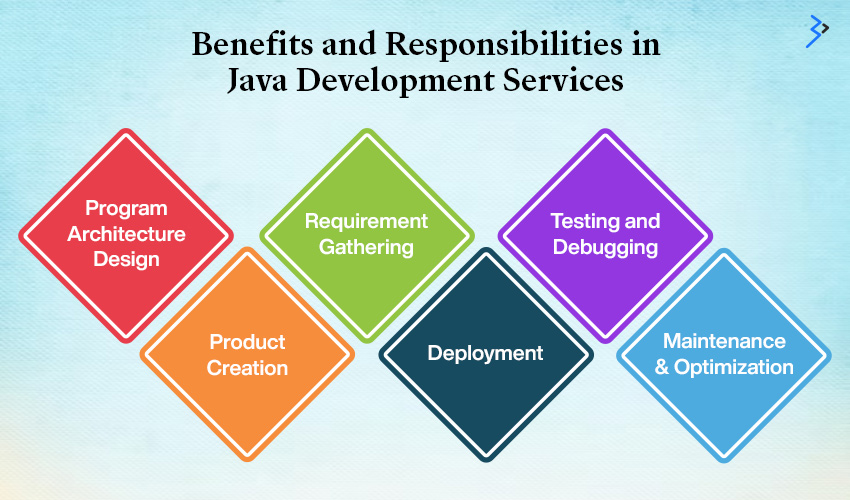
Benefits and Responsibilities in Java Development Services
Program Architecture Design
A Java developer translates the stakeholders’ vision into a concrete program architecture that aligns with the organization’s goals and competencies. This stage is crucial for laying the foundation of the project.
Product Creation
Java developers focus on creating software and applications by writing structured code and organizing essential code segments for future reuse. This systematic approach ensures the efficiency and scalability of the final product.
Requirement Gathering
Before embarking on new projects, the Java development team must gather requirements from
all stakeholders, ensuring clear objectives and efficient task allocation to maximize productivity.
Deployment
The deployment phase involves moving the final code to a live environment. Implementing changes before this step is essential to avoid delays and additional costs.
Testing and Debugging
Thorough testing and debugging are critical to delivering high-quality software. Java developers are responsible for identifying and fixing issues to ensure optimal performance.
Maintenance and Optimization
Post-deployment, Java developers continue to maintain the system and seek opportunities to optimize the software, ensuring it remains efficient and effective.
Services Offered by Java Development Companies
Java development companies offer a wide range of services, including:
- Java-based CMS Development: Custom content management systems tailored to business needs.
- Enterprise Java Applications: Development of client-server applications using Java EE for robust and scalable solutions.
- Web Application Development: Creating secure and interactive web applications and websites.
- Custom Java Mobile App Development: Building mobile applications that cater to specific business requirements.
- Java/J2EE Software Development: Crafting robust software applications with Java.
- Support & Maintenance: Ongoing support for updates and modifications to existing Java applications.
What are the Advantages of Hiring a Leading Java Development Company
Choosing the right Java development partner brings several benefits:
- Quality Assurance: Professional Java developers are dedicated to delivering top-tier applications that stand out in the competitive market.
- Cost Efficiency: Outsourcing to a Java development company can be more cost-effective than maintaining an in-house team, freeing up resources for other business needs.
- Effective Communication: Continuous communication ensures the development process runs smoothly, allowing for timely updates and adjustments.
- Focus on Core Goals: Outsourcing allows your business to focus on its primary objectives, growth, and reputation without being bogged down by technical details.
- Increased Profitability: Experienced Java developers bring efficiency and expertise, ensuring your project is completed cost-effectively and to a high standard.
Tips for Hiring the Best Java Developers
Define Your Requirements
Before looking for a Java developer, clearly outline your project’s needs. Understanding your requirements will help you choose the right developer or company for your project, whether it's a quick task or a long-term one.
Choose the Right Platform
Don’t rely solely on search engines to find Java developers. Explore professional networks like LinkedIn, which offer more refined results and help you find companies that meet your specific needs.
Create a Shortlist
Compile a list of potential companies to compare prices and services. Start with at least five companies, and use resources like Glassdoor and GoodFirms to gather reviews and ratings.
Check References and Reviews
Before deciding, thoroughly review each company’s references, testimonials, and achievements. This research will help you choose the most reliable partner.
Conduct Interviews
Through interviews, engage with the developers and managers to gain insights into their capabilities. This process will help you select the best company for your project.
Future Trends in Java Development
Java and Artificial Intelligence
Java is increasingly being used in AI and machine learning (ML) applications thanks to its performance, scalability, and a growing ecosystem of libraries like Deeplearning4j and Weka. As AI continues to evolve, Java developers can expect to see more tools and frameworks designed to simplify the integration of AI into Java applications.
Java in the Internet of Things (IoT)
The Internet of Things (IoT) represents another significant growth area for Java. Java’s platform independence and reliability make it ideal for developing IoT applications, from edge devices to cloud-based management systems. Java ME (Micro Edition) and Java SE Embedded are tailored for IoT development, allowing Java to run on small, resource-constrained devices.
Serverless Computing with Java
Serverless computing is transforming how developers build and deploy applications, allowing them to focus on writing code without worrying about the underlying infrastructure. Java developers can use platforms like AWS Lambda, Azure Functions, and Google Cloud Functions to run Java code in a serverless environment, enabling scalable and cost-effective applications.
Modernizing Legacy Java Applications
As Java continues to evolve, many organizations face the challenge of modernizing legacy Java applications. This often involves migrating to newer versions of Java, refactoring monolithic applications into microservices, and integrating modern technologies like containers and cloud services. Tools like Spring Boot and Docker are essential for modernizing and maintaining legacy Java applications in today’s fast-paced development environment.
Conclusion: Embracing Java Development Services
Java development continues to be a vital part of the software industry, offering unparalleled flexibility, scalability, and security. By engaging with experienced Java development services, businesses can leverage Java's full potential to create innovative, high-performance applications. Whether you need to hire Java developers for a new project or require ongoing support for existing applications, Java remains a trusted and powerful choice for developers and companies.
FAQs
- What are the primary uses of Java in software development?
Due to its reliability and extensive libraries, Java is primarily used for web development, mobile apps, enterprise software, and embedded systems.
- What is Java, and why is it significant in development?
Java is a platform-independent, versatile programming language for building stable, secure, scalable applications across various domains.
- What editions of Java are available, and what are their specific purposes?
Java has three editions: Java SE for general-purpose programming, Java EE for enterprise-level applications, and Java ME for mobile and embedded devices.
- How does Java contribute to application development?
Java provides a robust, scalable framework that supports cross-platform capabilities, security, and extensive libraries, enabling efficient application development.
- What are the different types of Java web development?
Java web development includes servlets, JSPs, and frameworks like Spring and Hibernate, which are used to build dynamic, scalable web applications.
- What are the essential Java coding guidelines for effective development?
Effective Java development requires following coding standards, ensuring code readability, and performing regular testing to maintain quality and reliability.
- Why should one choose Java for programming projects?
Java is chosen for its platform independence, robustness, extensive libraries, and strong community support, making it ideal for many projects.
- What are the benefits of using Java Development Services?
Java Development Services offers expert solutions, efficient project execution, and continuous support, ensuring high-quality and cost-effective outcomes.
- What are the potential consequences of not outsourcing Java development?
Not outsourcing Java development can lead to higher costs, longer development times, and potentially lower-quality software due to limited resources.
- What should businesses consider when hiring a Java Development Company?
Businesses should evaluate the company’s experience, technical expertise, communication skills, and ability to deliver on time and within budget.
Related Articles
Digital Transformation
Hyper-Personalized Banking: Driving Customer Loyalty and Engagement with AI-Powered Adobe Experiences
Digital Transformation
Leveraging 3rd Party LLMs: A Guide to Commercial AI Platforms
Digital Transformation
AI-Driven Security: Protecting Your eCommerce App and Customer Data in an Evolving Threat Landscape



